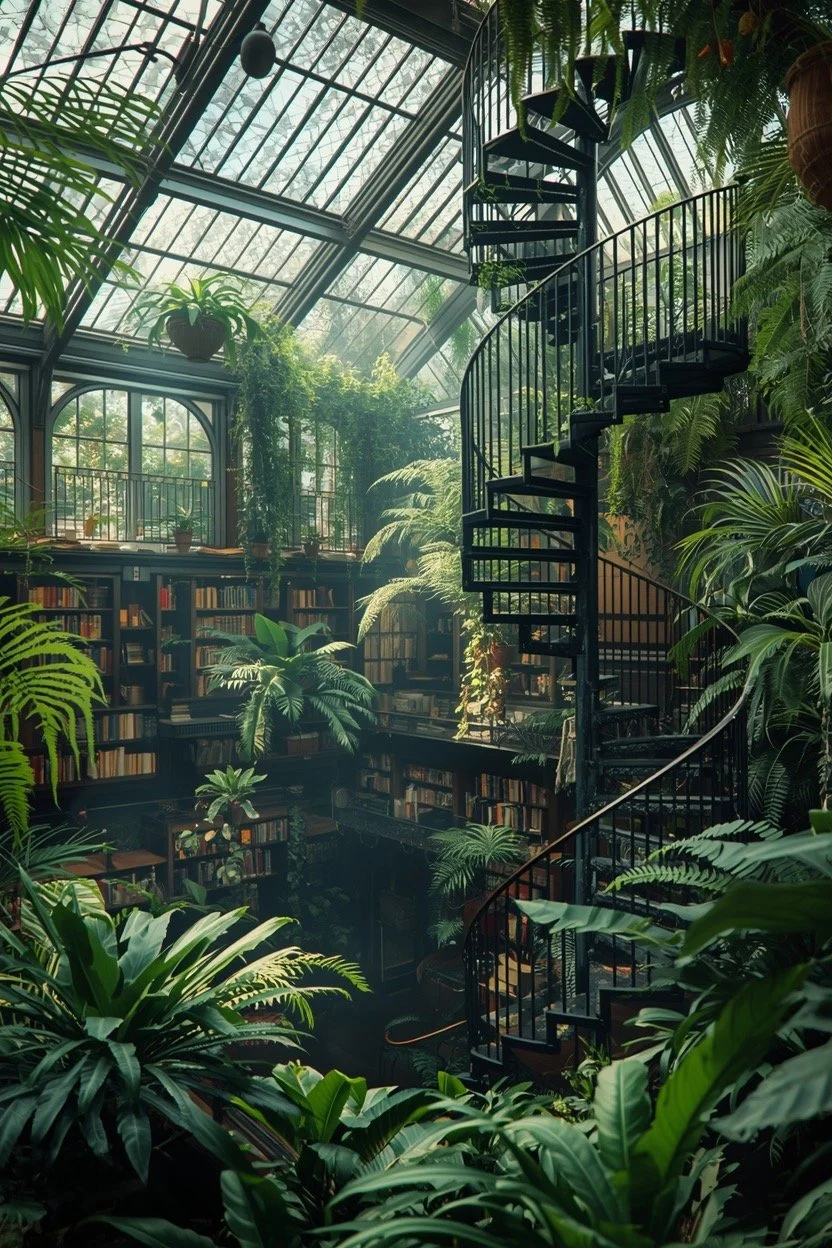It’s Day Four…And You Can Find Me At The Four Seasons…
Let me express my gratitude for not wasting my time meeting up at the Four Seasons for our birthday bash. Now, you know where to find me when I am in your city.
I want to thank everyone who has supported the vision and mission over the years. This is just the beginning, and you are all the best of the best, and I appreciate your hard work, dedication, and craftsmanship. I am incredibly grateful, inspired, and hopeful by our audacity!
Our hearts, minds, and collective efforts remain with the people of Iran and the communities affected by ICE across our country.
Cheers to another year! It’s 2026, and may our glasses remain full of champagne. 🥂 🍾
Copyright © 2026 Jameel Gordon - All Rights Reserved.
It’s Day Three…AND I Still Can’t Confirm or Deny…
Is it Easter yet? I can’t keep doing this to them year after year. But we’re already in our fourth year, and they still refuse to stop. So, if the cross traffic doesn’t stop, why should we stop?
Is it safe to say that 2026 is over? It’s 2016? Do you want to start fresh, reset the game? They’re back to flipping through their playbooks already. We saw that coming and we know what plays they’re going to use next.
Yes. The climate has changed.
I am not even operating in my authority or the authority they bestowed upon me. So what should that tell you. It’s a game of thrones and we’re sitting on it.
Let me get back to work because, obviously, these bills don’t pay themselves. They require me to work, which means someone has to pay me so I can pay my bills, and then they can pay their bills and meet payroll. It is insanity and it’s called currency for a reason. Without freedom, how the hell do we keep the lights on? I won’t answer this question for you because you can’t afford it or me. I use my freedom to set others free. That’s what I do all day.
I’m thoroughly exhausted with delivering speeches and performing the duties of these politicians, government officials, community leaders, and their representatives. Catch me on the flip side where the invoices get paid.
All this winning got me losing my mind. Thankfully, I’m smiling for whole other reasons. 😏🤫🙃
Copyright © 2026 Jameel Gordon - All Rights Reserved.
A Day Later…I Still Can’t Confirm or Deny…
I’m not even sure why this is necessary. This is my life, and I’ll always be famous.
To faith and religious leaders worldwide, this is not an attack on your faith, beliefs, or religious systems and communities. Your best course of action is self-care. Self-care is for baddies. I’ll eat your cookies, drink your hot chocolate, attend your potlucks, and your marshmallow roasting sessions. However, please refrain from distributing pamphlets and expressing a desire to save me from what exactly? This isn’t that. Clearly, this message is directed towards the Christians in the room and their obligation to evangelize. Please stop. You’re annoying at best. I don’t want to argue with you. For the pastors who believe this is their moment in pop culture, please get one of your acoustic guitar-playing simps and their background vocalists to soothe your souls. This isn’t that. For everyone else, if what you believe isn’t make believe, then let us pray.
To the Holy Roman Catholic Church and its members worldwide, I want to express my deepest gratitude for your unwavering service and support over the years. You already know what the business is and much of it is still unfinished business. I believe it is time for us to have an open and honest conversation. We have much to discuss. Let’s talk and bring your you know whats.
To all the unbelievers who don’t believe in anything. Tell me! What don’t you believe and we’re in agreement.
Once again, my business is for the adults in the room. Our clients and customers are worldwide, and we are dedicated and committed to providing them with the most exceptional quality and service they can ever think or imagine. That’s my focus and my concern.
P.S.: I still don’t know why he’s so mad! 🤷🏾♂️
Moral of the story: Students! Do not, I repeat, please do not outshine your master! Save yourselves the trouble.
Until soon,
Copyright © 2026 Jameel Gordon - All Rights Reserved.
I Can’t Confirm or Deny…
Is on its way soon, I promise. In the meantime, please don’t judge me if I’m quiet about many things happening in the world. To be honest, from my perspective, there’s so much I can’t confirm and so much I can’t deny. If I’m even more honest, I’ve seen all these playbooks before. It’s important for me to remain focused and not be too swayed by anything in order to achieve my own goals and mission, according to my vision and the future world I’m building. I’m neither blind nor deaf, but I’m operating with as much wisdom, restraint, and a sound mind as possible.
For instance, regarding the ice shooting in Minnesota, I’ve watched several videos, and I believe we can all agree that none of them justify the use of deadly force. After much thought and processing, I’ve come to the same conclusion: no one else’s actions warrant the use of deadly force by another person. This is especially true for law enforcement officers, who we expect to be more judicious and restrained in their use of force given their role and responsibilities. However, if I understand correctly, this group is operating under special privileges. I have no further arguments to offer and nothing to prove.
The same applies to the situation in Iran. I’m not blind or deaf, but I’m operating within my own limitations, given that much of the news focuses on the notion of a lack of internet connectivity. Unless I’m verifying my information through secure, trusted, and verifiable people, I see things without seeing and hear without hearing. I neither trust nor disbelieve, nor am I overly skeptical, as some might think.
So, what do I think is the best course of action? For one, self-care is for baddies. We all need to prioritize our well-being first and foremost. Secondly, check in with those closest to you and ensure that your loved ones are healthy, safe, and well-cared for. From there, care concentric outwards. The reality is undeniable: Yes. The climate has changed. With the advent of artificial intelligence and its widespread applications across various aspects of our lives and society, including military and law enforcement, it’s crucial that we remain vigilant. At the very least, we should ensure that wise minds are in charge of the wheels, including our own personal vehicles, to maximize safety for as many of us as possible. As I’ve mentioned before, we’ve all read our history books and are aware of all the possibilities that lie ahead. These possibilities are not beyond our comprehension, even for those of us who lead with optimism.
Please be cautious of fake news and deepfakes, but yes, the climate has indeed changed and geopolitics is for the adults in the room.
Copyright © 2026 Jameel Gordon - All Rights Reserved.
A Living Commitment to Accountability and Impact
From the beginning, our work has been shaped by a simple truth: you cannot build solutions for the climate crisis without first examining your own impact. As we continue developing systems, ideas, and innovations meant to address environmental challenges, we’ve held ourselves to a principle of personal responsibility.
Today, we’re taking an important step in formalizing that principle.
We’re proud to share that we have developed our promise—a clear, practical, and evolving commitment that outlines how we intend to operate with integrity as we grow. This pledge will serve as a central part of our ethos and will guide our decisions across research, development, partnerships, and operations.
Why a Sustainability Pledge?
For a long time, we’ve wanted a framework that wasn’t performative, overly technical, or buried in legal jargon. Instead, we wanted a document that is:
• Practical
• Accessible
• Honest
• Adaptable
We also recognized a real challenge: many existing sustainability standards didn’t offer the depth, clarity, or flexibility needed for the kind of work we aim to do. This pushed us to spend meaningful time developing our own internal language—our keywords—to help us communicate and execute with greater precision.
Finding inspiration in Bibi van der Velden’s sustainability manifesto, we finally had the spark we needed to shape a pledge that reflects who we are and what we believe.
What This Means Going Forward
The sustainability pledge we’ve developed is not a one-time declaration—it’s a living document. As our operations expand, as our research deepens, and as the climate landscape continues to evolve, we will adapt and update our commitments.
A Commitment That Grows With Us
Sustainability is not static—and neither are we.
This promise is the beginning of a long-term, iterative process to ensure our work not only addresses environmental issues but does so with transparency, humility, and responsibility.
We look forward to sharing updates as our commitments evolve, and as we continue building solutions rooted in accountability and real-world impact.
Copyright © 2025 Jameel Gordon - All Rights Reserved.
Why I Care About the Environment Even If I Don’t Always Act “Perfectly”
Recently, someone close to me accused me of not caring about the environment. They know me well and, in their view, my actions don’t align with my supposed concern for climate change and sustainability. To some extent, they’re right. If you judged me solely on small, individual actions, you might wonder where my concern truly lies.
I don’t panic over oil spills. I run the shower before I get in (like a good 15 minutes. I like the bathroom steamy! 🤣). My wardrobe, while mostly secondhand, is not made from natural fibers. I drive to the gym fifteen minutes away if I’m running late instead of walking. By conventional standards, some of these choices may seem hypocritical, even careless.
But here’s the thing: I know the climate crisis isn’t solved by guilt or perfection. It’s not fixed by the sum of individual acts alone, no matter how virtuous they are. The real drivers of environmental destruction are large-scale, systemic, and corporate; the result of industries, policies, and consumption patterns far beyond any one person’s control. I refuse to fool myself into thinking that personal sacrifice alone will save the planet.
That doesn’t mean I don’t care. On the contrary, the natural world is central to who I am. My entire being thrives outdoors, in forests, on mountains, by rivers, under the open sky. I care deeply. But caring doesn’t always look like constant individual vigilance. Caring can also mean focusing energy where it can make a tangible impact: seeking real-world solutions, influencing change at systemic levels, and thinking critically about how we interact with the environment on a larger scale.
Yes, I recognize the apparent hypocrisy. I see the moments where my choices don’t align with my ideals. But the criticism that I don’t care about the environment is wrong. My care isn’t performative; it’s real, it’s thoughtful, and it’s strategic.
I share this because I think we need to broaden the conversation about what it means to care for the planet. Environmentalism isn’t just about small, individual acts of virtue. It’s about understanding the scale of the problem and directing our energy toward meaningful solutions, not personal guilt.
So yes, I care. Profoundly. I just care in ways that are intentional, pragmatic, and rooted in reality not in a constant treadmill of performative ECO-GUILT.
Copyright © 2025 Jameel Gordon - All Rights Reserved.
Reintroducing the Endogenous Sustainable Economy Theory: A New Vision for Global Sustainability
In recent years, the global conversation around sustainability has increasingly centered on frameworks like the circular economy: models designed to reduce waste, regenerate resources, and create more efficient systems of production and consumption. From the European Union’s Circular Economy Action Plan to China’s state-led industrial circularity initiatives, these efforts have laid the groundwork for a more sustainable world. Organizations like the Ellen MacArthur Foundation have played a pivotal role in translating these ideas into actionable strategies for businesses, governments, and communities.
Yet as effective as these frameworks are, they often remain exogenous, shaped by external regulations, standards, and institutional mandates. While they address efficiency and material flows, they do not fully engage with the inner dimension of sustainability; the consciousness, values, and agency of the individuals and communities at the heart of economic systems.
This is where the Endogenous Sustainable Economy Theory (ESET) enters the conversation. ESET is not simply a set of policies or technical solutions; it is a paradigm shift in how we understand and organize the economy itself. At its core, ESET proposes that true sustainability must arise from within—from the values, intentions, and decisions of individuals, communities, and local ecosystems. It envisions an economy that is relational, regenerative, and self-aware, where prosperity is measured not just in financial or material terms, but in the flourishing of human and ecological well-being.
The theory challenges the traditional “take-make-dispose” paradigm by asking not only how we produce and consume sustainably, but why and for whom. It recognizes that external systems—whether regulatory, technological, or market-driven—can only succeed when aligned with the conscious choices of the people they serve. In an ESET-informed world, economic systems are co-created, adaptive, and deeply rooted in local cultures and ecologies, yet connected by universal principles of regeneration, sufficiency, and ethical reciprocity.
I am going to further my work to fully develop and operationalize ESET on a global scale. This next phase will focus on defining practical pathways for education, governance, industrial systems, and technology that are informed by endogenous principles. It will involve collaboration across sectors, cultures, and communities to ensure that ESET is not just a theoretical framework, but a living, actionable model for sustainable and equitable global economies.
The goal is ambitious: to create an economic paradigm where sustainability is not imposed from the outside but emerges naturally from the conscious choices of humanity itself. The circular economy is a great structure, but ESET provides the inner logic, the compass guiding how those structures are used, adapted, and evolved.
In the months ahead, I will share updates, insights, and practical tools as we begin this work. ESET is more than a theory. It is a call to reimagine how we live, produce, and thrive together on a finite planet. We invite innovators, thinkers, and change-makers from all sectors to engage, contribute, and co-create this next chapter of sustainability with us.
The journey toward an endogenous sustainable economy is just beginning and together, we can design systems that are not only regenerative for the planet, but restorative for society, communities, and the human spirit itself.
Copyright © 2025 Jameel Gordon - All Rights Reserved.
Rethinking the Energy Question in AI and Climate Change
When it comes to conversations about climate change and artificial intelligence, the number one concern that always comes up is energy. People are quick to point out that AI consumes massive amounts of power to process even a single inquiry. And they’re right. Data centers require enormous energy, much of which today isn’t green, not by global standards, and certainly not by the standards I believe we should hold ourselves to.
Here’s my response: don’t worry about it. Not in the way you think.
Understanding energy consumption in AI requires stepping back and looking at the bigger picture. You have to look at how current industries operate, how economic pillars are structured, and how these pillars are attempting to transition into the future we are building. I am being kind here: let’s pretend this energy use oversight is transitional. The reality is far from perfect, but that doesn’t mean it’s a long-term crisis.
The truth is, the energy challenge in AI isn’t insurmountable. There are solutions. Not the obvious ones most people imagine. This isn’t about small optimizations or half-measures; it’s about fundamentally rethinking how we create, store, and distribute energy at scale, and how we integrate that with intelligent systems.
I recently heard a tech CEO talking about ambitions to build data centers in space. Now, if the goal is to extend humanity’s reach and infrastructure into the cosmos, I can see the logic. But if the intention is to solve Earth-bound energy problems by sending our problems into orbit, that’s shortsighted. It’s a natural urge, born of good intentions, but it’s not intelligent—it’s not a future-oriented solution.
So here’s the real takeaway: everyone needs to relax. Let’s brush up on our basic sciences. Let’s clear our minds and focus on tapping into our internal creative processes. The future isn’t something to fear; it’s something to co-create. The possibilities that lie ahead—across climate, technology, and society—are far greater than you can imagine or think right now.
The energy question is just the beginning. If we approach it with intelligence, creativity, and courage, we’ll find that the solutions are already waiting for us sometimes in places we least expect.
Peace,
Jameel
Copyright © 2025 Jameel Gordon - All Rights Reserved.








